4 March 2020
Using reflection to transition from problems to solutions in four African cities
When technical specialists and city officials from Uganda and Malawi’s four biggest cities were granted the space to reflect and truly unpack their cities’ complex challenges, the energy shifted from abstract, non-committal outcomes to real and plausible interventions.

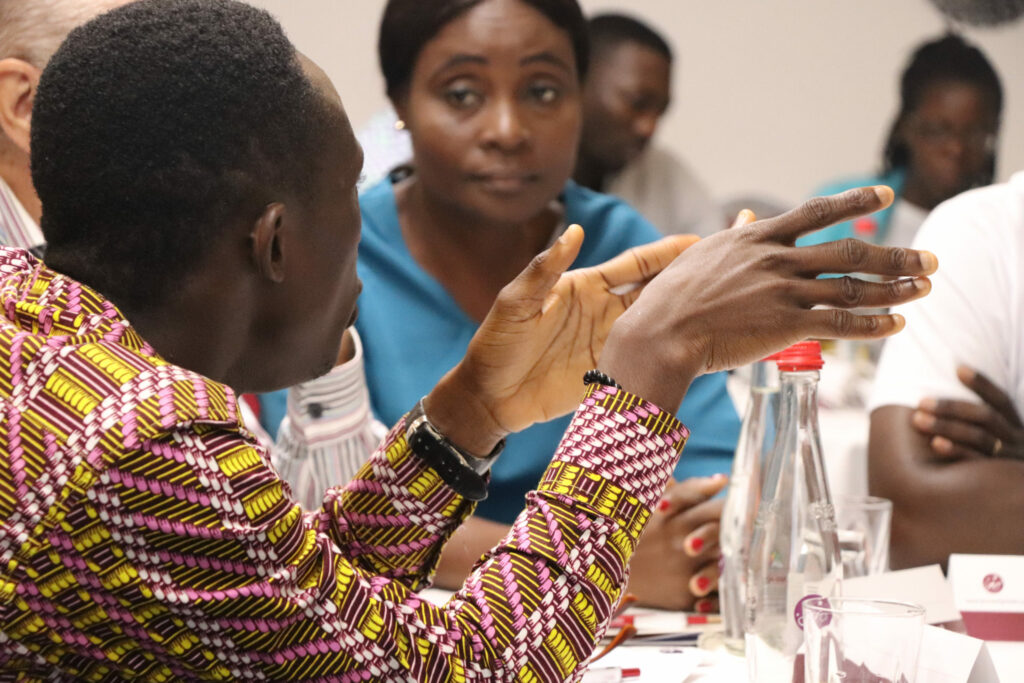

Cities are complex and ever-changing and it’s difficult for a single city official to make innovative and context-specific decisions when they don’t necessarily have the technical skills to deeply unpack unique and wicked problems. ICLEI Africa’s Reflecting Cities project is equipping our urban leaders with the tools, processes and knowledge they need to engage with cities as complex adaptive systems and to make interventions that will create thriving, sustainable cities in Africa.
The four project cities are Blantyre and Lilongwe in Malawi and Entebbe and Kampala in Uganda. Both Malawian cities identified traffic management as their most pressing urban issue, while Entebbe and Kampala identified waste and urban greening as their respective focus areas. The project’s first inter-city exchange brought together all four project cities to unpack these challenges through a systems thinking lens: by starting with the context. Two local dialogues followed where the countries got together separately with all stakeholders that have the power to make real change in addressing their individual problems.
The officials were engaged in ways they may not have expected. They were provided the opportunity to stop, reflect and to view old-age challenges through a new lens and the engagements invited honest discussions that lead to a deeper understanding of city systems. Solutions that are much better adapted to the complex challenges faced by African cities emerged.
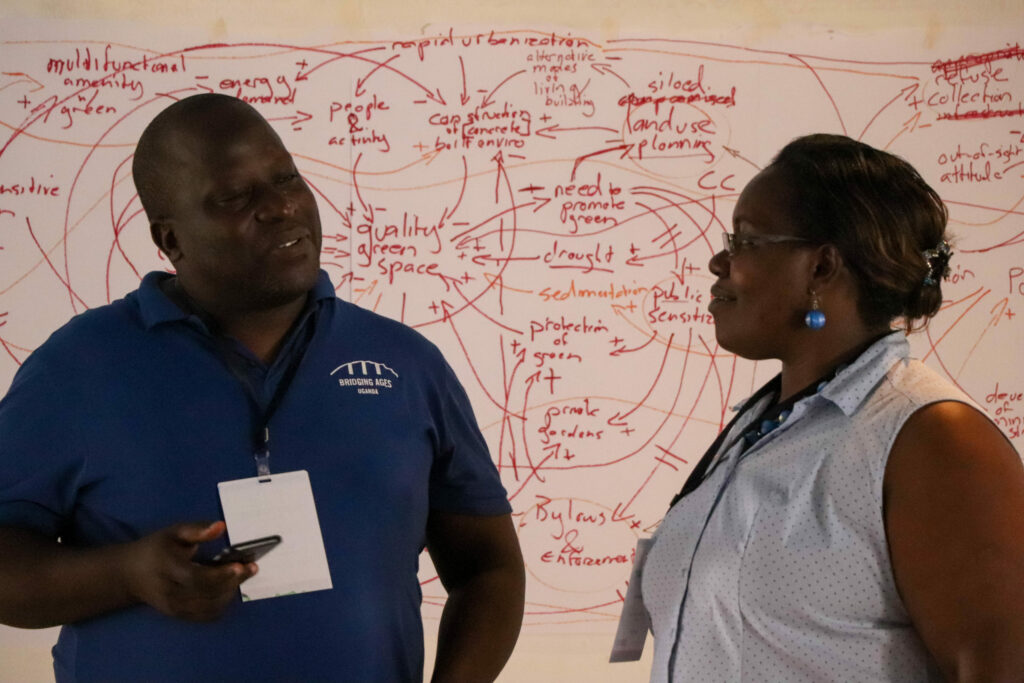
Traffic management in Malawi: Building cities for people, not cars
In Malawi, the team from ICLEI Africa continued its ongoing ecomobility work through a cross-city knowledge sharing local dialogue that brought together city officials from Blantyre and Lilongwe as well as all key stakeholders in Malawi to discuss traffic management.
Facilitated discussions sought out how traffic is related to the city as a whole. Participants realised that traffic and transport challenges are directly linked to a lack of internal coordination, limited engagement with stakeholders in the transport sector and an absence of effective and innovative design principles that harness the walkable streets and local economic activity of the urban centres (e.g. informal trading).
During open, non-judgemental conversations, participants pointed out that the euro-centric city planning principles so often found in African cities are a root cause of congestion. Currently, amenities such as schools and offices are separated from residential areas, therefore increasing travel distances between these places and ultimately causing higher traffic volumes. Officials went home with a clear mission: to reflect on and develop land use processes and city design principles that work for the African context.
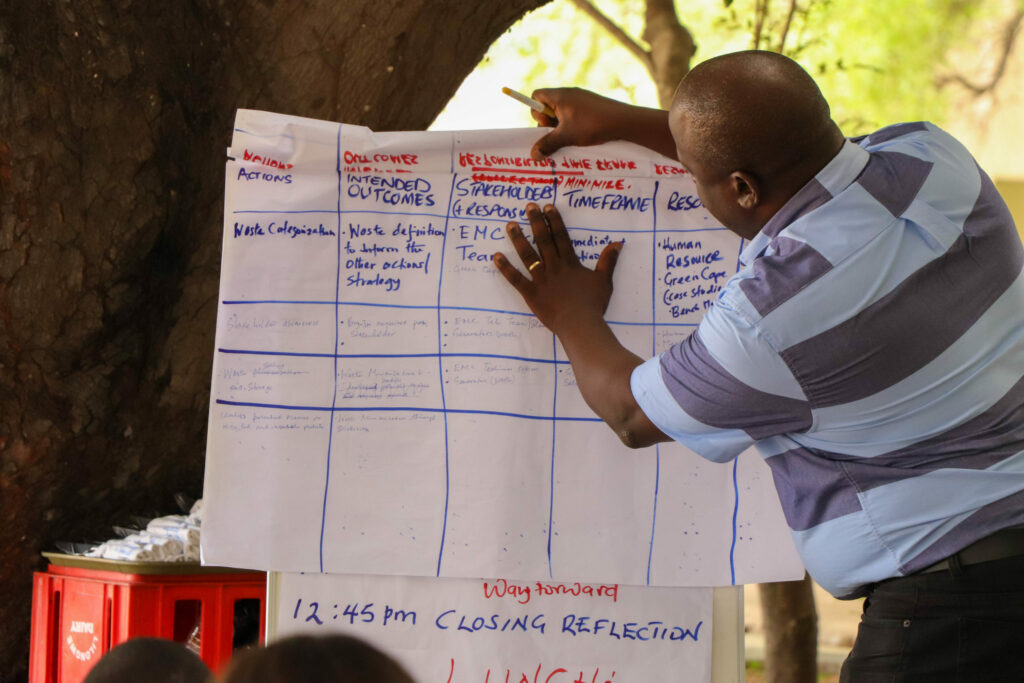
Urban greening in Kampala: Small, successful initiatives are the seeds for a greener capital
Kampala City is rapidly running out of green spaces, but as the city continues to expand, open green areas are the first to be developed. This undermines the resilience of the city and officials are starting to feel the effects of reduced greenery in a city where the population is only growing.
Kisenyi, a fast-growing informal settlement near the heart of Kampala, desperately needs more green space to provide safety, clean air and an urban oasis to those living and working in this densely populated area. While the City has distributed trees to households in the area, the communities have not maintained them. To manage this, the City exemplified how community ownership can truly drive the success of such a project.
City officers worked with people in the community, like landlords, parish development committees, local councils and their chairpersons and even members of parliament to really focus on the role of individual citizens in greening the city. Kampala City is now undertaking a tree audit to keep track of increasing and decreasing green cover.
City officials from the greater Kampala were able to see the importance of creating ownership with the individuals that make up a neighbourhood. If the residents understand why it’s important to plant and care for trees, they will continue to do so rather than view the project as something that benefits only the City.
Replicating this initiative across the capital city would create bottom-up change. If each project is tailored to the area and its context, together a series of small initiatives can systematically green the entire metropolis.
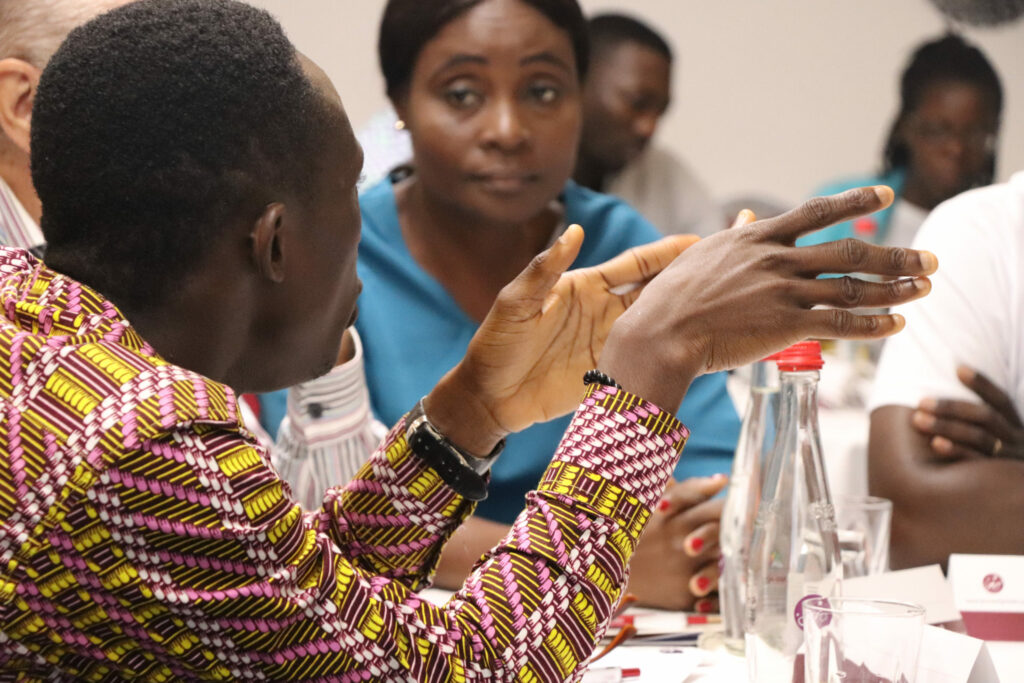
African cities are extremely dynamic and because of this, the challenges in urban centres often seem to be a burden to city officials. It was amazing to witness the release of this tension as city officials reflected on their urban challenges and began to realise how many opportunities the challenge actually offered
Jessica Kavonic, Climate Change and Urban Natural Assets Officer, ICLEI Africa
Waste in Entebbe: Officials swap the conference room for a waste dump site
Entebbe currently spends 30% of its budget on waste management and has tried a number of initiatives. They have a partnership with a European city, but the technology they’re provided with is unfortunately not relevant for Africa, as the context is vastly different.
Breaking the mould of the typical city dialogue, the group took a field trip to Entebbe’s waste dump site. The local municipal officials were purposefully removed from offices and conference rooms. At the site, they could walk amongst everything the city has discarded and engage with the waste collectors that spend their days trying to manage this overflow of rejected materials. This visceral understanding of the challenge brought about practical intervention suggestions rather than abstract plans.
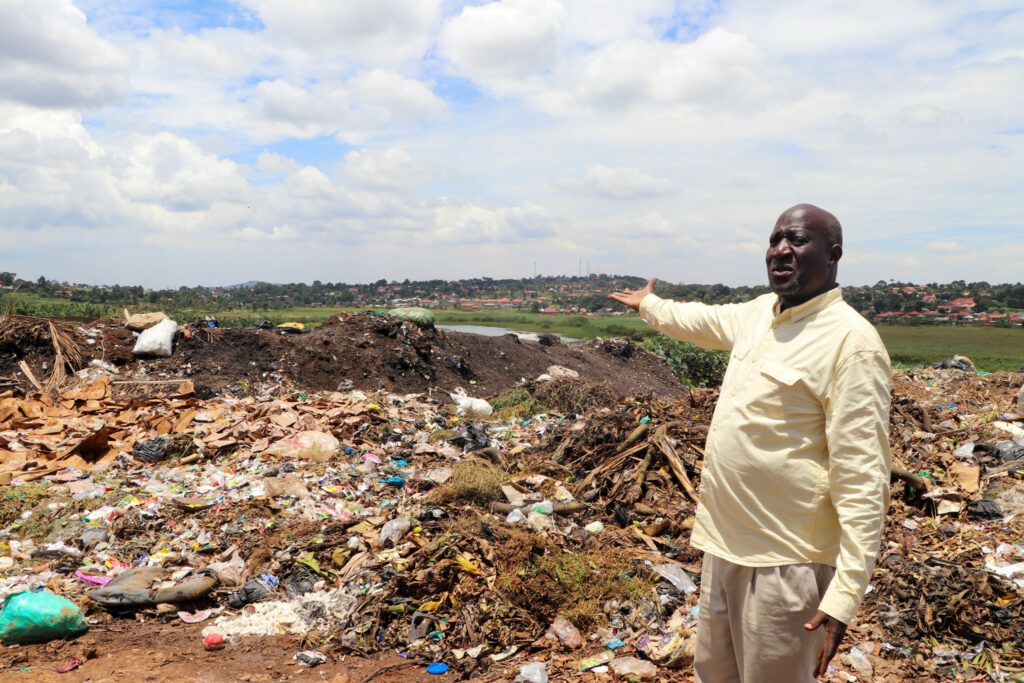
We need to realise that waste management is not a system on its own but part of a bigger system in our city – such as the water system. They work together.
Samson Semakula, Head of Production, Entebbe City Council
Understanding the problem creates the drive for change
Reflecting Cities’ aim is to get to the bottom of the challenges faced by cities in Africa and by doing so, find interventions for real, transformative change. It knows that cities in Africa are vastly different from cities in the Global North and that they require tailor-made solutions. While this could be seen as a challenge, especially in a time when cities are mushrooming and the earth’s resources are running out, we should see it as an opportunity. African cities can lead the way forward in creating solutions that not only consider the local context, but also the earth’s limited resources.
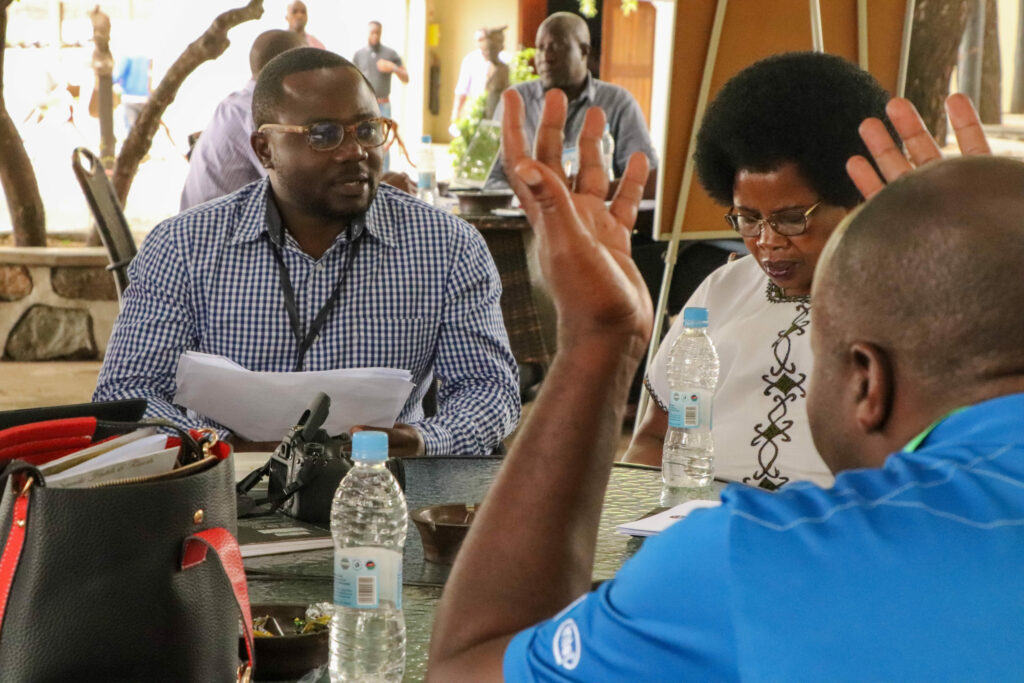
This knowledge exchange will give us the participating cities from Lilongwe, Blantyre, Kampala and Entebbe an opportunity to plan and learn good practices among ourselves and also from the experts to form a resilient urban planning network.
Vincent De Paul Kayanja, Mayor of Entebbe Local Council

